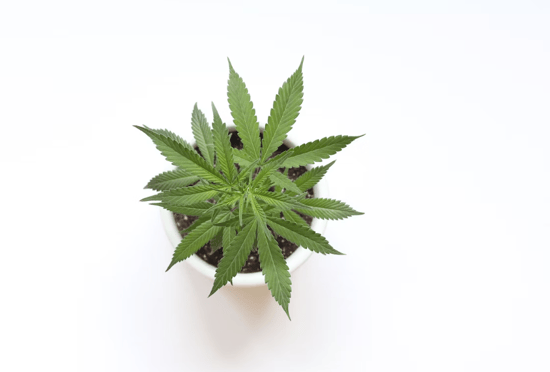It is the #1 Canadian marijuana purveyor, after all.
It might be hard to imagine Canadian marijuana company Tilray Brands with its under-$3 per share stock price, making anyone comfortably rich. Yet the history of publicly traded companies is filled with sleeper titles that rocketed dramatically higher in price.
Might Tilray be one of those sleepers? The company has historically operated in one of the most challenging sectors, but is undergoing somewhat of a pivot. Perhaps this new look will spur Tilray's shares higher, helping to vault its investors into the millionaire ranks. Let's see.
Buzz kill
For those not at all, or glancingly, familiar with Tilray, here's a brief digest. The Canadian company's stock landed on the U.S. side of the border with a Nasdaq listing in 2018; not coincidentally, that's the year its native government kicked off the inaugural phase of marijuana legalization. Meanwhile, in the U.S., states like Washington, Massachusetts, and California also pulled the trigger on recreational consumption and sale.
Tilray was a popular stock in that first flush of excitement, at a point when the early optimism on legal pot was thick and heavy. Like other weed companies surveying a new industry that had rapidly grown crowded and competitive, Tilray soon began to go for scale. It spent capital to acquire complementary businesses and grow into a large and powerful company, at least by the standards of the cannabis sector.
But this isn't an easy business, and through its existence Tilray has struggled mightily to make a buck. The roll-out of Canadian retail pot was clunky, to say the least, with licensing delays being particularly acute in key provinces like Ontario. Compounding that, illegal product provided stiff competition for the licensed stuff, and oversupply became a lasting problem in the "legitimate" weed world.
The pivot from pot
Tilray has tried again and again to find a way to pull itself out of the red. Its latest strategy is an offbeat and interesting one -- it's apparently aiming to become a top purveyor of craft beer. In early August, it purchased eight U.S. brewers from Anheuser-Busch InBev in an all-cash deal. Beer aficionadoes might be familiar with a few of these, like Shock Top, arguably the most recgonizable name in the bunch.
This, plus the American beer assets Tilray already owns -- like Montauk Brewing and SweetWater Brewing -- will make the formerly weed-only company the fifth largest craft beer purveyor in the U.S., it claims.
But is this the wisest use of precious capital for the money-losing Tilray? According to the Brewers Association, a trade organization uniting craft beer makers, U.S. volume sales of their products were only marginally higher in 2022 than in 2021. While that actually betters the performance of total overall beer sales, which fell by 3%, it still makes for an essentially flat line.
Some are optimistic about the future. Researcher IMARC recently forecast that the global market for craft beer will rise from slightly over $117 billion in 2022 to nearly $222 billion by 2028. But even if that speedy growth occurs, Tilray hasn't proven that it can be a player in the U.S. market in this segment, let alone conquer markets abroad with those niche brews.
Withering weed
So, yes, it's encouraging that management is looking for business opportunities that are sort of related to marijuana (alcohol is an intoxicant, after all) and vaguely synergistic with the drug. To me, though, this doesn't feel like it'll be a game changer, given that Tilray will be competing in a world full of both big and small breweries -- some of which have been selling the suds for a very long time.
Meanwhile, the company as a whole hasn't been performing impressively. Fiscal 2023 net revenue actually sagged from the previous year, landing at $627 million from $628 million. Robust growth in the expanding beverages unit (up 33% year over year to $95 million) couldn't save the day, not least because the take for the foundational cannabis operation fell 8% to $220 million. The bottom line, as usual, was well in the red.
I don't feel any part of Tilray's business, historical or current, holds great potential for growth. The company keeps spending money on assets, which at the moment only helps to lengthen its streak of net losses. If Tilray isn't making millions for itself, I'm doubtful it can make any investor a millionaire within a reasonable time frame.



